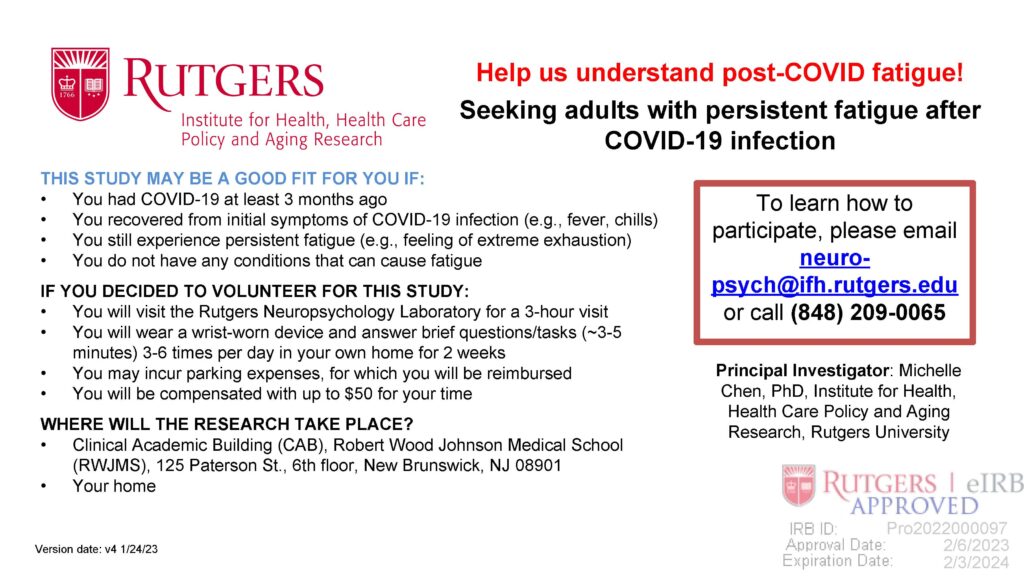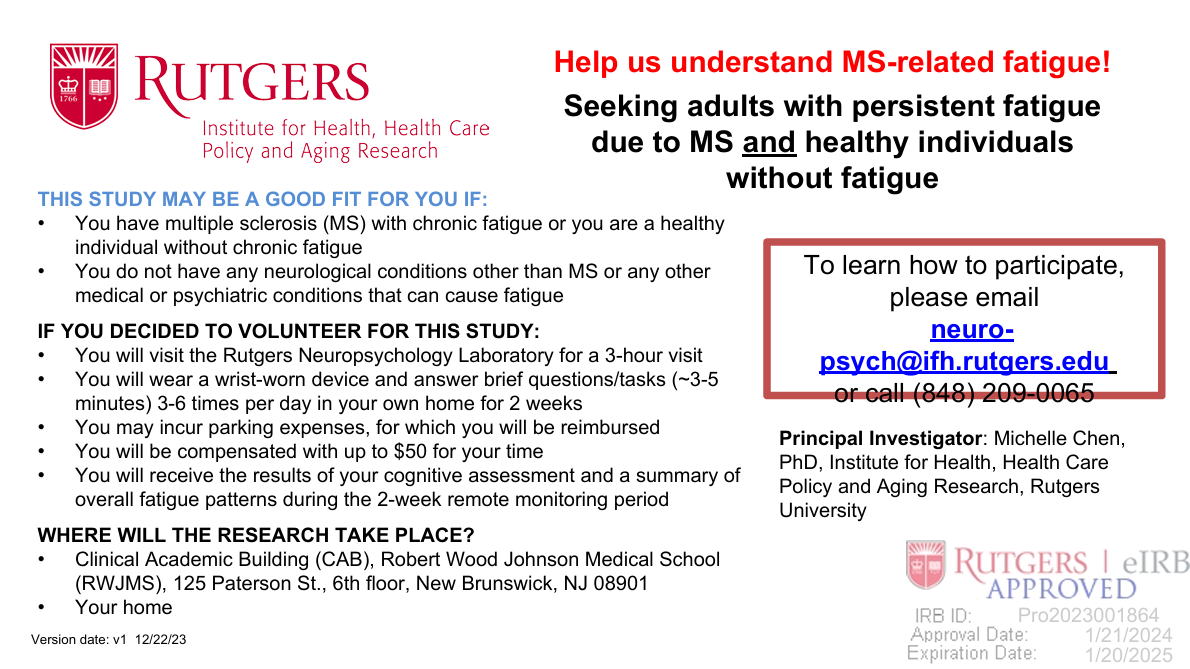Current Studies
Post-COVID Fatigue Study
There are many symptoms of post-COVID-19, one of them being fatigue which is the most common symptom of post-acute COVID-19 syndrome. This is when a person experiences persistent or delayed symptoms beyond four weeks from symptom onset. Fatigue can affect a person’s ability to even return to work or complete complex daily tasks.
This study focuses on adults who have persistent fatigue after recovering from initial symptoms of COVID-19. Participants will first be asked to wear a wristband that will measure their vitals while completing a mentally fatiguing computer task. Then they will be remotely monitored for two weeks using a wristband and an ankle monitor to assess their activity levels.
We’re looking for participants!
To learn how to participate, please email neuro-psych@ifh.rutgers.edu or call (848) 209-0065

MS Lifestyle Study
Multiple sclerosis, a neurodegenerative disease that begins during young and middle adulthood, affects nearly one million adults in the U.S. Cognitive impairment is one of the most prevalent and debilitating symptoms of MS. It is also a major cause for MS-related disability, disrupting symptom management, instrumental activities of daily living, employment.
Chronic health conditions (e.g., cardiovascular disease, diabetes), as well as negative health-related behaviors (e.g., smoking, poor diet, sedimentary lifestyle) which contribute to those conditions, have been identified in the aging literature as significant risk factors for cognitive decline.
There is increased attention to the role of health and lifestyle factors in the preservation or decline of cognition among persons with MS. However, the majority of existing MS studies on this topic have been cross-sectional, and existing longitudinal investigations have focused on the long-term effects of MS disease variables (e.g., course), baseline cognitive status, and neuroimaging markers, which cannot be easily targeted via intervention. The current study will fill this void by examining the longitudinal effects of modifiable health and lifestyle factors on cognitive change over time among persons with MS.
We’re looking for participants!
To learn how to participate, please email neuro-psych@ifh.rutgers.edu or call (848) 209-0065

Real-time physiological biomarkers of MS-related fatigue
Multiple sclerosis, a neurodegenerative disease that begins during young and middle adulthood, affects nearly one million adults in the U.S. Fatigue, reported as one of the most common symptoms, affects more than 60% of MS patients. It not only interferes with daily activities, but is also linked to reduced labor force participation rates, lower income.
Given that fatigue is a subjective feeling, extant research has primarily relied on retrospective self-reports. However, this method could only be able to capture the patients’ fatigue level at single time points and fails to reflect real-life fluctuations that have been reported by individuals with MS. To address these limitations, the current study will utilize innovative methods including in-the-moment surveys and wearable sensors to study real-life MS related fatigue.
For this study, we are recruiting adults who experience persistent fatigue after recovering from the initial COVID-19 infection. The study involves a 3-hour study visit to our research lab and a 2-week remote monitoring period. Please see the flyer for more details! We’re looking for participants!
To learn how to participate, please email neuro-psych@ifh.rutgers.edu or call (848) 209-0065
